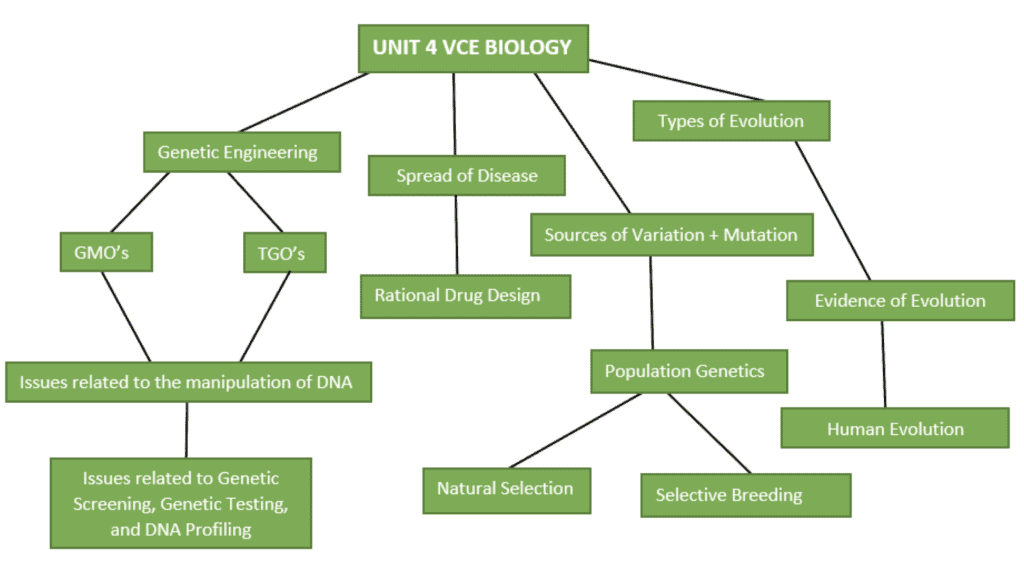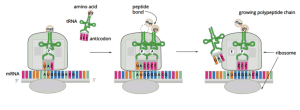The end of year VCE Exams can be daunting, especially when you are constantly focused on the next SAC or assessment and exam preparation often gets put off to the side — VCE Biology exams are no exception!
Everything comes down to thorough and adequate preparation and we’ve summarised some tips and tricks to start getting you well-prepared for your VCE Biology Exam right from the get-go!
Let’s dive right in!
Preparing for Your Exam
Tip #1: Drawing a Big Picture
Tip #2: Effective Note-Taking
Tip #3: Find Fun Ways to Learn
Tip #4: Active and Continuous Recall
Tip #5: Completing Practise Exams
Tip #6: Take Care of Yourself
Preparing for Your Exam
The VCE Biology Exam tests your knowledge on subject content with a focus on Units 3 and 4. It is a two and a half hour exam with 15 minutes reading time.
Sounds difficult at first, right? But, there are ways to make it easier.
Tip #1: Drawing a Big Picture
On first glance at the VCE Biology Study Design, it’s easy to gauge that there is a lot amount of content that you need to familiarise yourself by the end of the year .
Yes, it might seem like there are thousands of different things to learn but if you piece the different topics together one by one by drawing connections, it makes it easier to see the big picture.
This also helps with your exam strategy as it improves your overall knowledge.
Once you draw connections between different topics, it makes it easier to gain a thorough understanding of the background information for any question that you face.
In turn, drawing out the big picture simplifies the thought process required to formulate your answer!
Tip #2: Effective Note-Taking
It seems to be quite obvious that notes are important especially for a content-heavy exam like VCE Biology. How do we take effective notes and what do they look like?
Effective notes are those that:
- Cover a significant depth to ensure comprehensive knowledge is achieved in any specific area
- Are not too complex nor simple – works well for you and demonstrates your own understanding of the content
- Organised and are easy to navigate
- Can be quickly referred to when in need
- Cover all the key points you can be examined on
The best way to organise your notes is to copy down the dot-points of the study design into a word document, and take notes under each point.
This essentially acts as a checklist where you can tick off each point to make sure that you have in fact covered everything.
Not only does it organise your notes well, it also makes you more confident as you don’t have to constantly feel as though you have gaps in your learning.
When writing out your actual notes, don’t attempt to copy out the textbook. This is never helpful, and will make you less likely to look at your notes.
Instead opt to just reading these larger summaries and other material. Then, summarise the main points in your own words. You can even do these in dot points as long as you cover all the key aspects.
Some other ways to organise your notes include using diagrams and tables.
Using diagrams are very helpful — if you are able to look at a diagram and explain all the key points, it will allow you to draw out this information by simply visualising this picture during your exam.
For example, you can use of a diagram to summarise the translation process:
Image sourced from Heinemann Biology 25th Edition
Likewise, the use of tables is effective as it often allows you to see comparisons or construct an order for certain types of information, in all making it easier to remember.
For example, you can use a table to show the differences between Apoptosis and Necrosis.
| Apoptosis | Necrosis |
|---|---|
| Cellular condensation | Cellular swelling |
| Membranes remain Intact | Membranes are broken |
| ATP is depleted | ATP is required |
| Cell is phagocytosed | Cell lyses triggering an inflammatory response |
| DNA is fragmented in a ladder like way | DNA fragmentation is random |
| Individual cells appear affected | Whole areas of tissues are affected |
Tip #3: Find Fun Ways to Learn
Getting as much exposure as you can to the content is vital in order to successfully prepare for your exam.
Studying is often viewed as a tedious and boring activity. When you make it fun for yourself, you will be more likely to engage with what you are learning as well as remember it!
One way to make learning fun is to watch videos!
As mentioned earlier, pictures and visual aids are very good tools to help you understand information.
These are fun to watch when you want to get a picture of what you’re about to learn, or as a summary tool where you can follow along and check what you have just covered!
Some great Youtube channels that you can visit are Amoeba Sisters and Crash Course.
Another fun way to get involved with your content is to create a study group.
When there is more than one person you are bound to get into useful discussions about topics, this can often enhance your understanding of things and resolve any questions you may have. In these study groups, you can also do Kahoots to practise questions in a fun way.
Tip #4: Active and Continuous Recall
You should follow a study schedule where you are continuously revising the content that you learn earlier in the year, throughout the entire year.
Simply taking notes and never looking at them again until exam period is not a good way to go about preparing for your exam.
It is easy to neglect your Unit 3 content when Unit 4 comes around but remember that all of these points are equally examinable!
When you go about revising your content, there are a few things that can improve your active recall:
- You can make a Quizlet or hand-made flash cards for each topic which you can go over each few weeks.
- Don’t leave all exam practise questions to the last few months!
- Once you have covered a topic and made your notes, you can go through the VCAA papers and only do those questions relevant to the topic you have covered.
- This increases your exposure to exam-style questions and when it comes time to do full length practice exam papers, you will already be quite familiar with the question types.
Tip #5: Completing Practice Exams
Once it gets down to the last few months before your exam, it’s important to start doing full-length practice exam papers.
This helps you get a good idea of what to expect on the actual VCE Biology exam.
Note: It is important to take into account that if you are in Year 12, you will be completing 4 to 5 subjects in this year. Biology is only one of them, so getting an early start on exam papers is important.
Make sure that you eventually start timing yourself doing the exam, so you can get a feel for the conditions you will be under when you’re sitting in the exam hall.
After finishing your practice exams, it’s important to mark them.
VCAA Examiners Reports which have been published alongside the Past Exam Papers, are extremely helpful resources.
Ready to take some practice exams? Check out our Master List of VCE Biology Past Papers here!
Not only do they tell you whether your answer is right or wrong, they often provide high-scoring responses which allow you to see what the examiners are really looking for.
Compare your answers to those in the examiner’s report and identify where you may have gaps in your learning.
From here, you can revisit your notes, annotate any extra info and solidify these areas to ensure you are more confident in them before you attempt your next practice exam.
Take a quick refresher of Unit 3 VCE Biology and complete our practice SACS here and here!
Check out this collection of all the past VCE papers and exams to help you prepare!
Tip #6: Take Care of Yourself
Whilst preparing as best as you can for your exam is important, you should never compromise your health.
At the end of the day, taking care of your health will allow you to perform your best come exam day!
This includes:
- Taking regular breaks when necessary
- Getting adequate sleep
- Fuel your body
- Having fun
And that’s it! preparing for your VCE Biology Exam has never been easier!
Learn how to balance rest and VCE study over the holidays!
On the hunt for some extra practice questions for VCE Biology exam preparation?
Check out some of the ones we’ve created below:
- VCE Biology Unit 3 AOS 1 Practice SAC
- VCE Biology Unit 3 AOS 2 Practice SAC
- VCE Biology Unit 4 AOS 1 Practice SAC
Are you looking for some extra help with preparation for your VCE Biology exam?
We have an incredible team of VCE tutors and mentors!
We can help you master the VCE Biology study design and ace your upcoming VCE assessments with personalised lessons conducted one-on-one in your home or online!
We have expert tutors stationed all around Melbourne! Ace your next Biology exam with an awesome Essendon tutor, Doncaster mentor or Footscray coach?
We’ve supported over 8,000 students over the last 11 years, and on average our students score mark improvements of over 20%!
To find out more and get started with an inspirational VCE tutor and mentor, get in touch today or give us a ring on 1300 267 888!
Abhisha Vaheesan completed her VCE in 2021 and is currently an undergraduate student studying Bachelor of Radiography and Medical Imaging (Honours) at Monash University. As much as she is invested in Biology and putting together the building blocks of life, she is equally immersed in debating the conflicts of modern literature. Aside from this, she loves listening to music, is an avid writer and K-drama fanatic.








